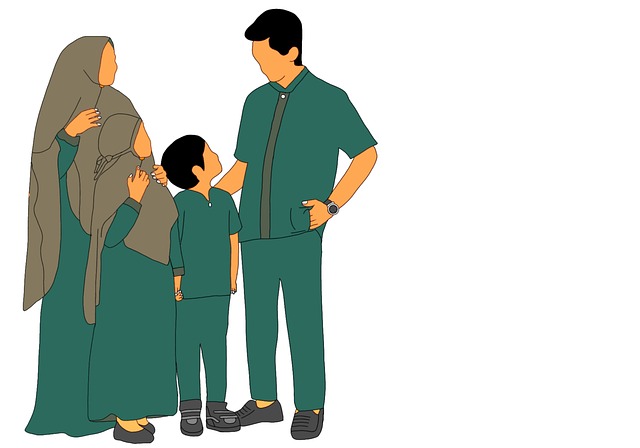Online family therapy, facilitated by video conferencing tools, offers a convenient, accessible alternative to in-person sessions, especially for geographically distant or busy couples. This modern approach fosters secure, confidential communication, strengthens bonds, and enhances self-awareness within the family unit. Therapists use specialized skills and tools like shared screens and secure file-sharing to create engaging virtual environments, ensuring equal participation and access to confidential information. Building a distraction-free, private space with clear boundaries is crucial for successful online therapy sessions.
In today’s digital era, couples seeking psychotherapy now have an accessible option with online couples psychotherapy. This innovative approach allows partners to connect with therapists virtually, expanding the reach of mental health services. Understanding the benefits and unique aspects of family therapy online is crucial for both therapists and individuals navigating this new frontier. From effective session techniques to building a supportive virtual environment, this article explores strategies for successful online couple’s therapy.
- Understanding Online Couples Psychotherapy: Benefits and Reach
- Facilitating Effective Sessions: Techniques and Tools for Virtual Therapy
- Building a Supportive Environment: Tips for Couples to Navigate Online Therapy Successfully
Understanding Online Couples Psychotherapy: Benefits and Reach

Online couples psychotherapy, or family therapy online, has emerged as a valuable and accessible option for many couples seeking support for their relationships. This modern approach allows individuals to participate in therapeutic sessions from the comfort of their homes, breaking down geographical barriers that traditionally limit access to mental health services. With video conferencing tools and secure platforms, therapists can create a safe and confidential space for couples to explore their issues, improve communication, and strengthen their bonds.
The benefits of online family therapy are numerous. It offers flexibility, accommodating schedules that may be challenging to align in person. This accessibility is particularly beneficial for couples with busy lives, those living in remote areas, or individuals who face travel restrictions. Moreover, online sessions can reduce anxiety associated with traditional office visits and encourage more open and honest discussions, fostering a deeper level of self-awareness and understanding within the couple.
Facilitating Effective Sessions: Techniques and Tools for Virtual Therapy

In the realm of family therapy online, facilitating effective sessions requires a unique set of skills and tools to bridge the digital gap. Therapists must adapt their approach to create a secure and engaging virtual environment for couples seeking support. One key technique involves utilizing video conferencing platforms that allow for face-to-face interaction, maintaining an essential element of human connection despite the distance. These platforms enable therapists to observe non-verbal cues, fostering deeper understanding between partners.
Additionally, integrating specialized tools can enhance the process. For instance, shared screens and collaborative documents facilitate co-creation of insights and action plans. Secure file-sharing platforms store confidential information safely while enabling access for both partners, promoting equal participation in therapy. These tools not only streamline communication but also create a shared space where couples can actively participate in their healing journey, making online family therapy an accessible and effective option.
Building a Supportive Environment: Tips for Couples to Navigate Online Therapy Successfully

Building a supportive environment is key for couples navigating online therapy successfully. Firstly, ensure your space is free from distractions and conducive to open communication. Create a dedicated area where both partners feel comfortable and safe to share their thoughts and feelings honestly. Establishing clear boundaries with family and friends during sessions can also help maintain privacy and focus.
Additionally, maintaining regular schedules for your virtual appointments fosters consistency and reliability in the therapy process. Use video conferencing tools that offer reliable connectivity and consider testing them beforehand to avoid technical glitches. Active listening and non-verbal cues are crucial online, so both partners should strive to be fully present, minimizing distractions like phones or other devices.
Online couples psychotherapy, or virtual family therapy, has emerged as a valuable tool, offering accessibility and convenience for individuals seeking support from the comfort of their homes. By understanding the benefits, employing effective techniques, and creating a conducive environment, this form of therapy can be just as successful as in-person sessions. With the right approach, online couples counselling provides an accessible gateway to healing and growth, ensuring that relationships have the opportunity to thrive despite distance or time constraints.






